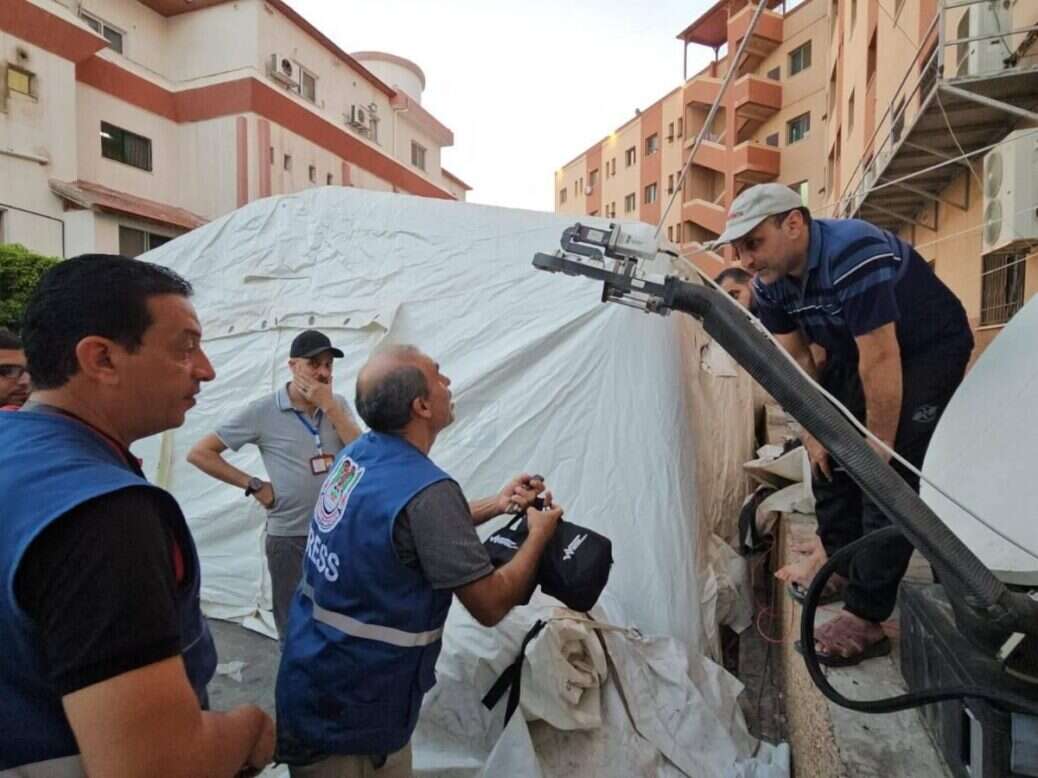
Yesterday morning, I signed off the International Federation of Journalists’ ‘killed list’ – our annual tally of journalists who have lost their lives while doing their jobs. We have published this index for 30 years, highlighting the terrible risks that reporters and camera operators take to bring home the news.
For months, it seemed as though 2023 would be a good year – perhaps even a record low. Then, on Saturday 7 October, Hamas insurgents murdered four Israeli journalists – as well as over 1,200 other victims – and the world changed beyond recognition.
So ferocious has been Israel’s response, that the subsequent tally of Gaza’s dead journalists has exceeded one fatality a day. Estimates put the overall loss of life in Gaza at close to 16,000 – a tragedy so vast that it is hard to comprehend. But the enclave’s media workers have lost their lives at six times the rate of the general population. At the start of October, Gaza had approximately 1,000 working journalists – 68 our now dead according to the IFJ’s estimate.
Amazingly, whenever I speak with journalists in Gaza, they seem extraordinarily resilient. Food and water is scarce, they need safety equipment and the usual necessities of reporting. But all express a deep commitment to documenting what is happening around them.
Nonetheless, observing the conflict from a distance, it is hard to see how life is going to improve any time soon for those living in either Gaza or Israel.
Last week, however, I detected the faintest glimmer of hope in the form of an unplanned meeting in Ramallah, on the West Bank.
International Criminal Court could look at journalist’s killing
Karim Khan is the chief prosecutor of the International Criminal Court in the Hague. Part of his job is to oversee investigations that could lead to criminal prosecutions for war crimes. He has previously worked as a prosecutor in the International Criminal Tribunals for Rwanda and Former Yugoslavia.
Khan was in the West Bank capital to meet with officials from the Palestinian Authority that governs that territory. During the course of these meetings, he happened upon Nasser Abu Baker, the president of the Palestinian Journalists’ Syndicate, the union that represents the vast majority of Gaza’s journalists.
It was a fortuitous meeting. For over a year Abu Baker has, with the backing of the IFJ, been petitioning Khan to investigate the death of Shireen Abu Akleh, the Al Jazeera reporter who was shot and killed by Israeli soldiers in 2022.
Against the unbelievable bloodshed of the past two months, her fatality seems an almost distant memory. The approach that the ICC takes to investigating her killing, however, could now take on a far broader significance.
Among the Palestinians’ most persistent grievances is Israel’s apparent impunity from international law. They document acts that they consider unreasonable, unjust and illegal, but nothing appears to happen. Abu Akleh’s case makes this case in volumes.
It was exhaustively reported around the world. It has been the subject of some extraordinary civilian forensics, and a meticulous UN report into the killing ends with these words: “the Commission concludes on reasonable grounds that the Israeli security forces used lethal force without justification under international human rights law and intentionally or recklessly violated the right to life of Shireen Abu Akleh.”
It is a damning assessment, but it has not been tested in court. Perhaps there is evidence that was missed. Maybe the testimony of the Israeli soldiers who were patrolling that day would lead to a different view. Or could the case simply be so confusing, that a verdict that is beyond all reasonable doubt is impossible? We will never know, unless a court considers the case.
Until now, Khan, who was born in Scotland and grew up Yorkshire, has sat on Abu Akleh’s case. Since the war started in Ukraine, for example, he has found time for at least four official visits to the country and has directed heavily-resourced investigations. About Palestine, he has appeared notably less interested – until now.
When they met, Khan told Abu Baker that his investigation into the Al Jazeera journalist’s death was underway – albeit with limited servicing. The Palestinian journalists’ leader was able to make the case for increased resources and an accelerated timetable.
If Khan is good to his word, then Abu Akleh’s case could provide a model that could create a framework whose application could have a much wider resonance.
At the moment, supporters of both sides in this conflict speak of war crimes unfolding. Rhetoric aside, however, there is only one place that a war crime can be determined, and that is in the court of Karim Khan. The example he sets in this case, will set the mood for the resolution of much that has taken place in the past two months.
The sight of the law being applied, thoroughly, scrupulously and impartially, will do much to reassure the great mass of Palestinians and Israelis that there are universal international values whose application has the capacity to deliver justice, decency and dignity for all. Those conditions contain the potential to lay foundations for lasting peace. Without them, Israel and Gaza will struggle to achieve a happy future, however the current round of this conflict ends.
Is that too much hope to balance on the outcome of a chance encounter and a prosecution that has not yet begun? Let’s see.
For my part, after a morning checking the details of so many dead journalists, the chance to fan a hopeful flame, however modest, allows me a flicker of hope that next year will be a better one.
Email pged@pressgazette.co.uk to point out mistakes, provide story tips or send in a letter for publication on our "Letters Page" blog
